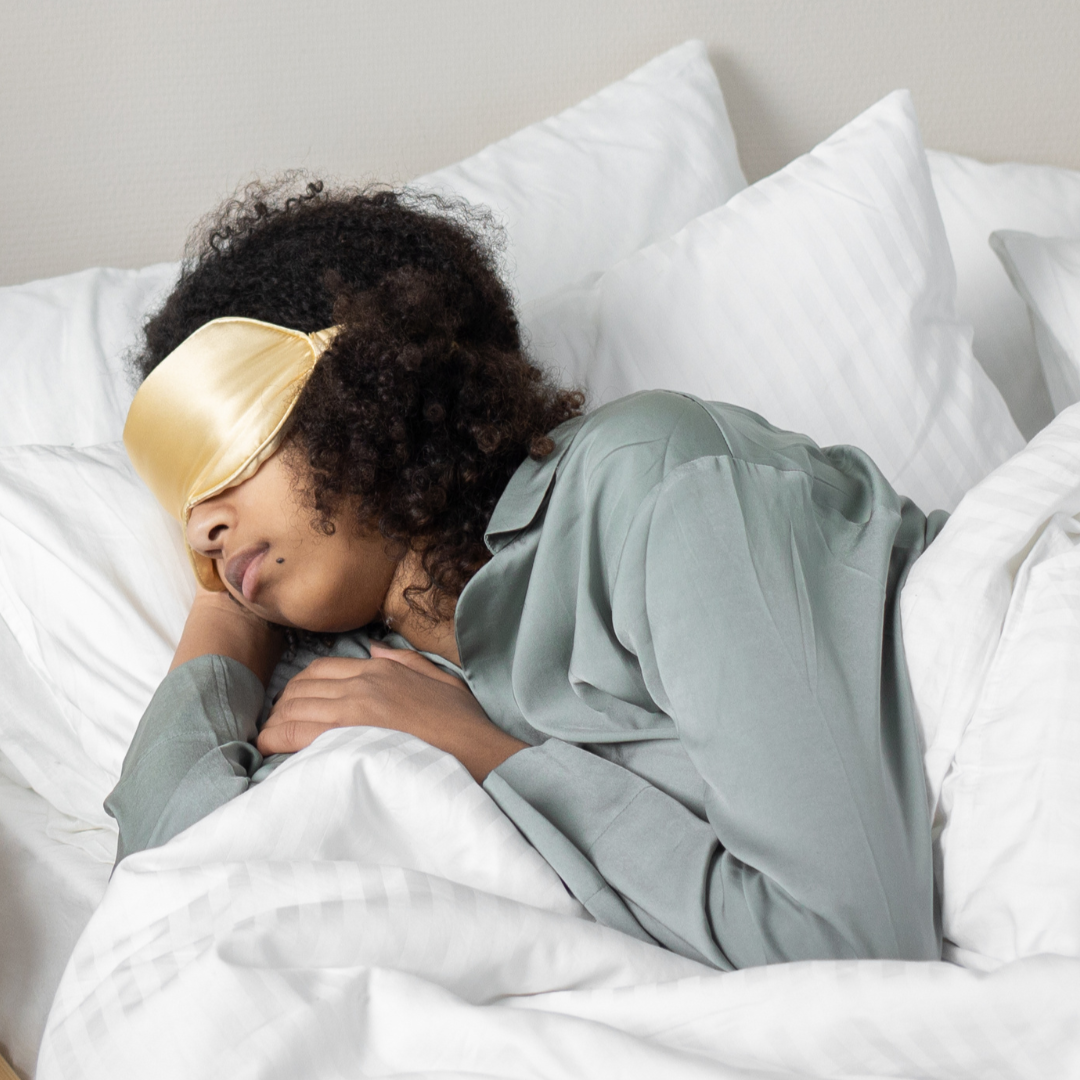Tired of Being Tired? How to Reclaim Your Sleep
At Kalms, we know just how vital sleep is for both physical health and emotional wellbeing. That’s why we recently carried out a nationwide study to better understand the UK’s current sleep habits, and the results were eye-opening.i
We surveyed 3,700 adults across the country and discovered that more than half (54%) often wake in the night and struggle to fall back to sleep.i
The results also found that:
- Half of respondents (46%) operate on low levels of sleep, less than 6 hours per night.
- The primary issues seemed to arise from difficulty falling asleep (52%) and frequent awakenings during the night (54%).
- Insufficient sleep seemed to take a toll on respondents, with half reporting feeling groggy (55%), tired and irritable and/or having difficulty concentrating (51%) the following day.
There are many factors that could cause poor sleep. However, according to our study nearly half of respondents (48%) attribute their sleepless nights to stress and anxiety.i This highlights it’s not just lifestyle habits keeping us awake, but the mental load we carry into the night.
Top ways to get better sleep
We all know how it feels to wake up tired after a restless night. Poor sleep can affect your energy, focus and overall health but the good news is you can incorporate a few small but powerful changes to your daily routine to help you get better sleep:
- Establish a consistent sleep schedule: Going to bed and waking up at the same time every day, even on weekends, helps regulate our internal clock. When our body knows what to expect, it’s easier to fall asleep quickly and wake up feeling refreshed. Even shifting our schedule by an hour can throw off our rhythm, so consistency is key.
- Create a relaxing bedtime routine: Developing calming bedtime rituals, such as reading a book, taking a warm bath, or practicing relaxation techniques like deep breathing or meditation signal to our body that it's time to wind down and prepare for rest, even helping to reduce levels of cortisolii – the stress hormone.
- Optimise your sleep environment: Make your bedroom conducive to sleep by keeping it cool, dark and quiet. Invest in a comfortable mattress and pillows, and consider using blackout curtains, white noise machines or earplugs to block out disturbances.
-
Limit stimulants and screen time before bed: Minimise consumption of caffeine and avoid heavy meals, nicotine, and alcohol close to bedtime, as they can disrupt sleep patterns. Additionally, reduce exposure to electronic devices such as smartphones, tablets, and computers, as the blue light emitted can interfere with the production of melatonin,iii a hormone that regulates sleep.
By incorporating these into your daily routine, you could significantly improve the quality and quantity of your sleep.
How Kalms could help
Some may find herbal remedies or supplements helpful in supporting them sleep. At Kalms, we’ve been providing traditional herbal remedies for over 50 years to help relieve stress, anxiety, exhaustion and sleeplessness. Our range offers a choice of remedies that fit into your life and support your emotional wellbeing needs.
Kalms Day is a traditional herbal medicinal product used for the temporary relief of symptoms associated with stress, whilst Kalms Night One-A-Night is a traditional herbal medicinal product used for the temporary relief of sleep disturbances. Both contain valerian root extract as its active ingredient. Valerian Root is traditionally used to relieve mild symptoms of stress, such as irritability and restlessness. It is derived from the roots of the Valeriana officinalis plant, native to Europe and Asia.

For more information on the Kalms range, click here.i The Kalmfulness Index. A nationally representative study on 3,726 British respondents. Commissioned by Kalms. 2023.
ii 11 natural ways to lower your cortisol levels (2023) Healthline. Available at: https://www.healthline.com/nutrition/ways-to-lower-cortisol (Accessed: 20 May 2025).iii Silvani, M.I. and Perret, C. (2022) The influence of blue light on sleep, performance and wellbeing in young adults: A systematic review, Frontiers. Available at: https://www.frontiersin.org/articles/10.3389/fphys.2022.943108/full (Accessed: 16 February 2024).
- Half of respondents (46%) operate on low levels of sleep, less than 6 hours per night.
-
Posted by Emily Garfield
2nd June 2025
